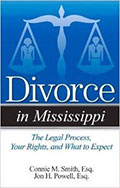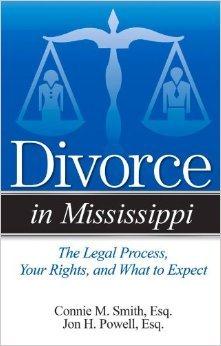1. My husband died without a Will. We have two children. Will I inherit everything?
No. You will inherit from your husband in an equal share as your children. In other words, you and your two children will each inherit one-third (1/3) of his estate. This can be a problem because (1) your children are minors (under 21) and a guardian will have to be appointed; and (2) your children and you will own both real and personal property in a one-third (1/3) share each.
2. My husband told me how he wanted his property to pass when he died. He wanted me to have everything. However, he never got around to writing it down in a Will. Do I have to divide his estate with his kids?
Yes. An oral will is very difficult to prove. Therefore, you will likely have to divide in equal shares your husband's estate among you and your children.
3. My husband wrote a new Will last year. Just days before he died he told me he wanted to change his Will to leave everything to me. Do I have to probate the Will since he told me that he wanted me to have everything.
Yes. Without more, your husband's statement that he wanted to change his Will to leave everything to you is insufficient to revoke his previous Will. Therefore, the Will must be probated as that is his latest formal written expression of how he wanted his estate to be divided at his death.
4. My wife and I have two young children. We want to write a Will leaving everything to each other. However, we are concerned that we could get killed in a car wreck or some other event. What should we do to cover the possibility that we could be killed at the same time and protect our children's inheritances?
This is the question most couples with young children face when preparing their Will. First, you can name in your Wills whom you want to be guardians of your children (i.e., who you want to raise your children). This requires that you give a lot of thought as to whom you feel comfortable with in raising your children. Second, you should consider writing a provision in your Wills which states that in the event both of you should die in a common incident or occurrence, that all of your assets go into a testamentary trust for the benefit of your children. You would need to name a Trustee who administers the trust (i.e., watches over, manages, and pays money out of the trust to the guardian to be used for the benefit of the children). In choosing a Trustee, you should consider who you consider to be very responsible with money and whom you trust to manage the children's money. While it may naturally seem that the same person(s) who you name as guardians of your children should also be the Trustee, that is not always the case. A Trustee can be a family member, trusted friend, or a Trust Department at a local bank.
5. Is there something that I can do with my land that will keep my family from having to open an estate just because I owned land?
Yes. Prior to your death, you can deed the land to someone you want to have it. However, you should be very careful in doing this and consult an attorney before you do this.
You can also title the property in a way that it passes outside of your estate. One way to do this is to have a deed prepared conveying it from yourself to you and others, as Joint Tenants with Full Rights of Survivorship and not as Tenants in Common. The survivorship aspect of holding title to property in this way ensures that as soon as you die, title automatically as a matter of law passes to your surviving joint tenants. However, this may not necessarily be the best way to accomplish what you want. You need to consult an attorney for advice.
6. If my father left a Will which leaves everything to me and excludes my brother and sister, do I have to probate his Will? I'm afraid that doing so will only hurt my brother's and sister's feelings.
Yes. You do have to probate the Will. Mississippi has a statute which provides that if you secret away a Will and do not probate it, you are guilty of a felony and can serve up to two years in jail. However, to be certain you don't create a problem for yourself even though your heart is in the right place, you need to probate the Will. You can always attempt to renounce your inheritance, and ask the Court to divide the Estate evenly between you and your siblings. You should consult an attorney if you are faced with this situation.
7. My father left a Will leaving everything to his "lady friend". At the time my father wrote his Will, he was very ill, on pain medication, and had to be driven by his "lady friend" to the lawyer's office who drafted the Will. Is the Will valid?
Maybe or maybe not. To be a valid Will, it must meet certain requirements and must be his true last wishes. If your father lacked the ability to understand and appreciate the value and extent of his estate, or if he was unduly influenced by someone with whom he had a confidential relationship, you may be able to overturn the Will by contesting the Will in Court. You should seek the advice of an attorney.
8. My mother died in 2009. She didn't have a Will. She was survived by my father and three children. Before mom died, our brother died. At the time of our brother's death, he was married with two children. Our brother died without a Will. How is our mother's estate divided?
Your mother's estate will divided as follows: Your dad will inherit 1/5, each of the surviving children will inherit 1/5, and the deceased brother's wife and two children will each split the deceased brother's 1/5 interest (each receiving a 1/15th interest). This is the perfect example of why a Will is needed.
9. Can I make provision in my Will for my pets?
Yes. Pets are personal property. You may make provision as to who inherits them. However, you should not write a provision in your Will leaving any portion of your estate for the care and maintenance of your pets. If you are thinking along those lines, I would suggest leaving a cash bequest to a local animal shelter with a stipulation that they must house, feed, and provide necessary veterinary care for your pet as a condition of the bequest.
10. If I die owing debts, who pays my debts?
If you died without a will, a part of the administration process (probate process if you died with a will) is to provide notice to all known creditors and to publish in the newspaper a notice to all unknown creditors that they should file a claim against the estate if they are owed money. If they do file a claim against the estate, and there is sufficient assets to pay the debts, then the creditors will get paid from the estate. If there are insufficient assets to pay the debts, then the creditors may or may not get paid, depending on whether the debt is a secured or unsecured debt. Any creditor who does not file a claim against the estate does not get paid (unless the creditor is a secured creditor).





